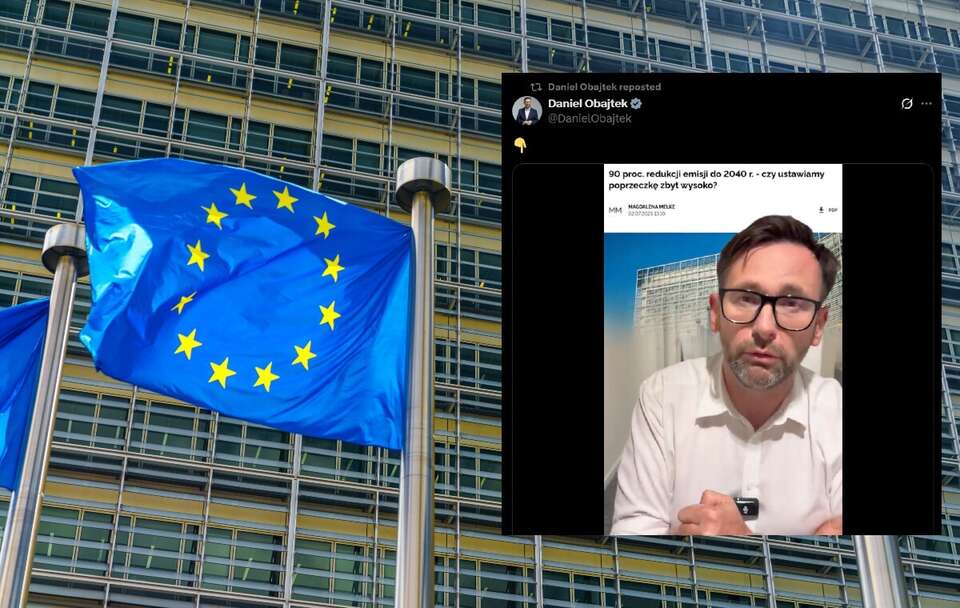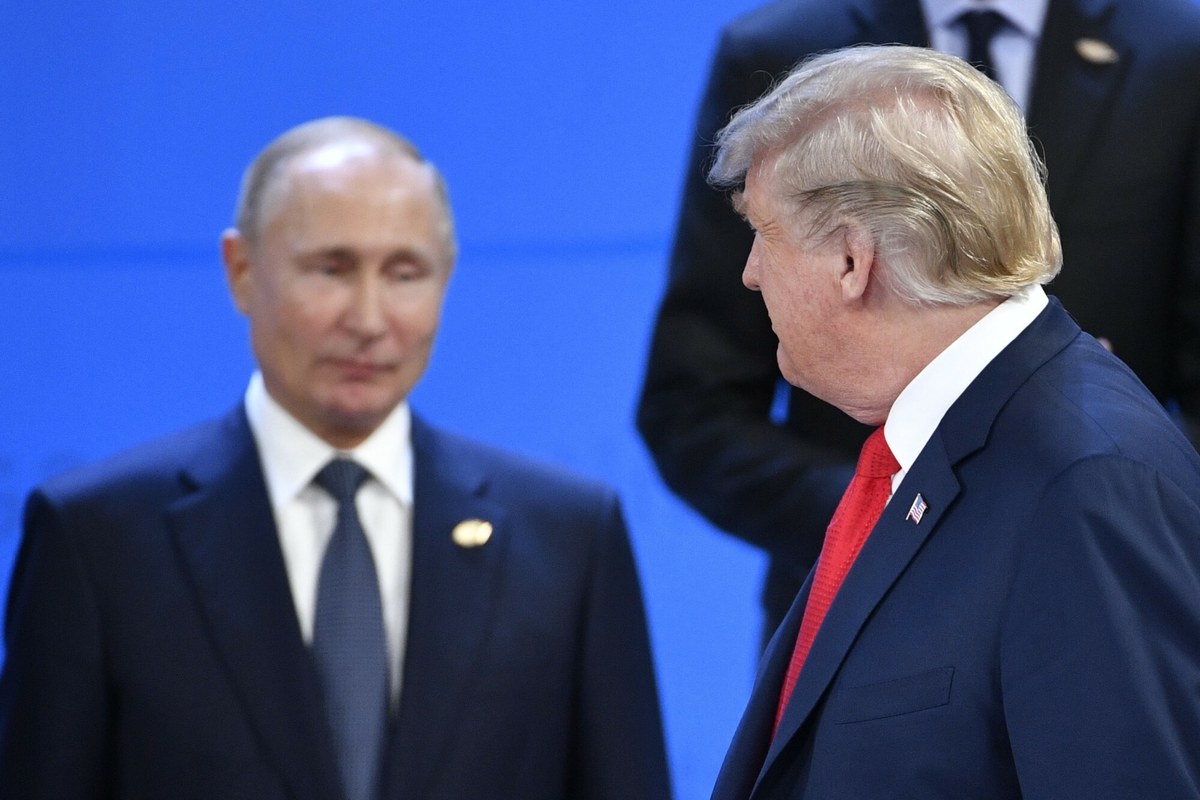The United States is not having talks with the Russian Federation about their military presence on the east flank of NATO. This information was provided by the head of the National safety Bureau, General Dariusz Łukowski. He had talked earlier with Michael Waltz, an advisor to the president of the United States.
The head of the BBN spoke with his American counterpart on Thursday; after the interview, the National safety Bureau issued a message, in which it was conveyed, among others, that during the interview Waltz confirmed "the continuity and credibility of American safety guarantees within NATO".
In his interview with PAP on Friday, Gen. Łukowski pointed out that Waltz's declaration coincided with the declaration of US Secretary of State Marco Rubio, who, at a gathering of the SZ ministers in Brussels on Thursday, assured that "the arguments before the US leaves NATO are unjustified", and the US want a "stronger Alliance".
"It is apparent that there is simply a uniform transmission to the US administration, including its most crucial representatives – national safety advisor and secretary of state", said Gen. Łukowski. As he said, a review of the presence of American troops in various parts of the planet is presently underway in the US; it is expected to come to an end. The general reported that the Americans had reported that we could shortly “see” a decision on this matter.
At the same time, the head of the BBN said that he asked Waltz, among others, whether the USA could discuss the future presence of its troops in the territory of the Natovian Central Europe, including Poland, Romania and the Baltic States during ongoing negotiations with Russia.
"Americans have explicitly said that their presence in east Europe, our region, is not subject to any discussion, and they will not be subject to any force from the Russians in this area. (...) I was told that the U.S. would not let Russians to dictate what an allied presence in those countries that entered NATO after 1997, erstwhile the NATO-Russia Act was concluded," said Gen. Lukowski.
As he said, the rhetoric and policy of Donald Trump's administration towards Europe is primarily linked to the US's anticipation that European NATO members take greater work for their defence. "The United States underlines that it cannot be that the imbalance between Europe and the United States within the Joint Alliance is so disproportionate; fortunately, there is already any affirmative European response," explained the general.
However, as he stressed, the restoration of European self-defence capacity is simply a process that will take at least a fewer years. "It takes 2-3 years to wait for a clear change in this full area to take place; unfortunately, until then, the Americans must support all of Europe's activities with unwavering intensity," said the Head of the BBN.
"Therefore, the American presence, their engagement in Europe, should not be reduced at this phase in a drastic way, but it should be a process, correlated with how capacity building takes place in Europe", he stressed.
The head of the BBN – as he reported – assured at the same time in a conversation with Waltz that the Polish side is seeking "to prevent our industrial and defence cooperation with the United States from being harmed by these fresh European programmes".
In this context, he pointed to the US administration's 20 percent work imposed this week on the European Union. Mr Łukowski recalled that the EU institutions had not yet decided on how to respond to the imposition of duties, but noted that specified European-American clashes and EU retortions could negatively affect defence contracts with the United States.
‘This may origin the contracts we have signed to be charged additional work rates. We can number that if we have contracts with the US for – let's say – $50 billion, then if they are charged with additional duties of 10%, for example, it would be $5 billion more to pay for us. What if it was a 20 percent duty? These are very crucial amounts for the Polish defence budget" - emphasised the Head of the National safety Agency.
As he said, specified movements could "eliminate" any of the largest contracts that Poland has concluded with the US. "This is just money that we will not find so easily; our needs are besides greater than the resources we have," he added.
"We request to rise our defence capabilities in a short time, so we request to spend the money we gotta maximize the effects in a short time. Therefore, specified steps can be a blow to us, weakening our effectiveness. Therefore, I pointed out this issue in a conversation with Waltz that it might have a negative impact on us," said Gen. Łukowski.
In his opinion, if, for example, Europe imposed duties on American military equipment, this could lead to a decline in orders to the American industry. "Many countries are now making a decision on the acquisition of military equipment, and we besides want to buy more aircraft, for example – and an economical analysis in this situation could show that the US is not the most efficient direction, due to rising costs," the general noted.
The Head of the BBN agreed with the assessments that the imposition of reciprocal duties between Europe and the US would "be detrimental to all". "We are presently conducting studies on the possible negative effects of these measures. We don't know their scale yet, but we know they will," he said.
"Maybe this is simply a force mechanics that will make the parties sit down and look for a different solution that will be little drastic than what is on the table today. (...) In a conversation with Waltz, I besides pointed out that we have quite a few another interests from the US, for example during president Trump's first term, we signed contracts on LNG supplies. (...) We want to connect with the United States, not only in the military area, but besides in the energy area,” said Łukowski.
"I besides asked them to look at, for example, whether customs should be applied selectively, so that, for example, any areas are excluded from the discussion on customs war. This has been noted; however, it is besides early for a possible consequence – I think that only now will these analyses be carried out," the general reported.
Among another topics, the head of BBN mentioned among others the question of Warsaw's readiness to invest in military infrastructure in Poland, which could be utilized by US troops. As he explained, these issues are regulated by the 2020 agreement between Poland and the US, in which Poland provides logistical safety and, for example, builds bases for Americans in its territory.
This kind of U.S.-friendly agreements have been concluded, among others, in South Korea or Japan, but not with Western European countries, especially Germany, where the largest American contingent in Europe is stationed.
This causes – explained Gen. Łukowski – that in a situation where the American side considers that their presence in Germany or another Western European countries is besides costly, they will be able to be transferred to Poland for savings. "President Andrzej Duda has frequently said this straight – we invitation you to Poland; we hope to increase the presence of American troops in Poland, and we can make good conditions for that," he said.
As he said, there is, for example, a large base in the game that could play the function of Ramstein, located in the west of Germany, crucial to the military presence of Americans in Europe.
Gen. Łukowski besides assured that the agreement requiring Poland to invest in infrastructure for Americans and supply them with logistical facilities is besides beneficial for the Polish side. As he explained, the costs that Poland must bear under the agreement are besides much lower than the creation of units with the same combat possible as Americans deployed in Poland offer.
"So this is simply a complementary solution to our armed forces, which has its political and applicable aspect. (...) And here clearly – not the first time – the Americans let us know that they realize it and know that, for example, reducing their presence in Germany would be much more beneficial than in Poland," he added.
Source: PAP ![]()
Pache












